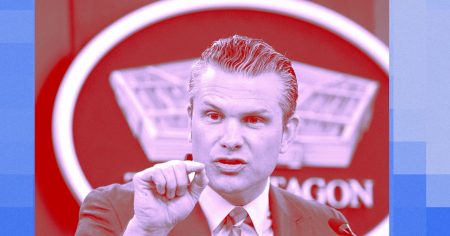Co-founder and Managing Director of Reputation House. Marketing and Communication expert, public speaker and author.
As an experienced business developer, I know how navigating the corporate landscape today requires more than just a strong company brand; it also demands leaders with powerful personal brands that echo their company’s values, commitment and vision.
Because of this, I believe that executive managers and CEOs should prioritize their personal branding online and offline, understanding how this can directly influence the success of their organizations.
What Is Personal Branding?
At its core, personal branding represents more than just a buzzword or a modern trend; it’s an essential tool in today’s online reputation management. It is the intricate process where professionals, especially high-ranking executives, meticulously mold and market themselves and their illustrious careers as distinct and memorable brands.
For those higher up the leadership chain, like CEOs, personal branding becomes even more critical. It helps get across their unique selling proposition and sets them apart in a saturated marketplace. However, I’ve seen too many who do not see the value proposition in spending time and resources building a personal presence. While acknowledging the benefits, they do not think it’s worth the time or energy to build a personal brand.
But when effectively built, a CEO’s brand can elevate them from being a mere organizational head to an industry stalwart and respected figurehead. This brand acts much like your distinctive signature—always recognizable, consistently reliable and a testament to a commitment to excellence. It’s not just about how you present yourself but about the values, expertise and vision you bring to the table, promising stakeholders an experience and value that is unmatched elsewhere.
How Does Personal Branding Impact A Company’s Development?
When a top manager cultivates a robust personal brand, it doesn’t just benefit their individual career—it significantly affects the company they lead. In one survey, executives estimated that “44% of their company’s market value is attributable to the reputation of their CEO.” This means nearly half of a company’s perceived worth in the marketplace can hinge on the public image of its top leader. An executive with a solid brand garners trust not only internally among employees but also externally with stakeholders, partners and customers.
Furthermore, in a world where stakeholder trust is vital, 81% of global executives believe that “external CEO engagement is now a mandate for building company reputation.” The active involvement of C-level managers in public discourse, thought leadership and industry trends reinforces a company’s commitment to its mission and values.
Broadly speaking, an executive’s personal branding can be seen as the reputational cornerstone of the entire organization. With 70% of consumers “somewhat” or “completely” trusting a brand’s website and 69% trusting a company’s mentions in editorial content, it’s crucial for top executives to be highlighted in articles, reviews and expert pieces. Moreover, having their personal website or a dedicated section on the company’s site is indispensable. This paves the foundation for online reputation management strategies, with SEO taking the lead.
How Does Personal Branding Affect Sales?
The influence of personal branding extends beyond mere reputation building; it directly impacts a company’s bottom line. According to a different survey, 95% of financial and business analysts would buy stock based on a CEO’s reputation and 94% of respondents indicated they would advise people to buy the stock based on the CEO’s reputation.
Drawing from my professional journey, here’s a distilled blueprint for a CEO’s personal brand.
• First, tap into social media. Particularly, places like LinkedIn and Twitter are gold mines for insights and connections.
• Second, be visible in mass media. Even one appearance can position you as an industry expert. Public speaking, whether at conferences or webinars, gives a platform to share and connect. Also, write for top-tier publications; it’s a clear signal of thought leadership.
• And lastly, always prioritize networking. Relationships matter, and mentoring can bring unexpected rewards.
Evidently, the image of the executive leader doesn’t just shape perceptions—it drives actionable financial decisions. The trustworthiness, credibility and expertise associated with a CEO have the power to propel sales and foster shareholder value.
Today, personal branding can be seen as a leap of faith, one that requires precision, dedication and an unwavering focus on one’s vision. In the vast arena of business, executive managers equipped with a strong personal brand have the power to guide their companies to unparalleled success. The message is clear: As seniors, you’re not just leading a company; you’re embodying its promise. The time to take charge of that narrative is now.
Forbes Business Council is the foremost growth and networking organization for business owners and leaders. Do I qualify?
Read the full article here










